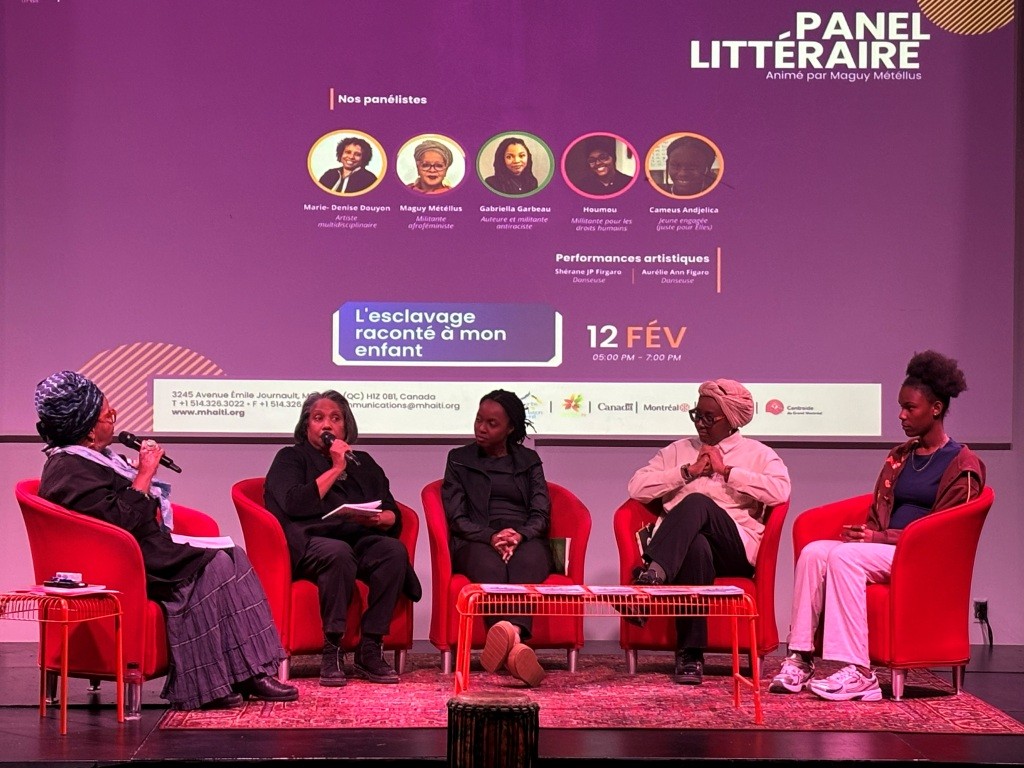
Geriatric specialists are increasingly recommending that seniors age with their families, with the help of the state if necessary. But Enice Toussaint and Jean-Paul Langlois did not need experts to know this: their lived experience is undeniable. Things are changing among the Toussaints. Enice, 74, lives with her brother and grandchildren in a small house in Plateau Mont-Royal, bequeathed by her elder sister. The latter, a nurse by trade, has finished her retirement as a volunteer in the CHSLDs, and Enice will never forget what her sister told her: “If I fall ill and become a vegetable, let me go, don't put me in.”
It must be said that family support is part of the mentalities and values of the Haitian community. “It is rare that parents are placed in CHSLDs. Even if someone has Alzheimer's, we take care of it. Relatives and friends come to help,” explains the septuagenarian. Her granddaughter, Elle Camay, is aware of her luck. “It gives wisdom to live daily with your grandfather or an uncle. You learn from their life experience and their valuable advice,” says the 24-year-old literature student. In the evening, young adults close their bedroom doors and turn the volume down. During the day, they help carry grocery bags. The clan is united. This model is ideal according to Elle Camay. Enice is reassured by his words. Her dearest wish is to grow old as long as possible in the company of her loved ones. She thinks of that blind lady in the neighborhood who, at 97, still lives with her 70-year-old son. “You have to keep the elders at home as long as possible. That we leave them alone at home and that we find people to help them day by day,” she believes.
Money Does Not Buy Happiness
The coronavirus reminds Jean-Paul Langlois of his childhood in the 1940s, in Sainte-Flore, in Mauricie. His grandfather lived across the street from his house on the other side of the row. From one day to the next, visits were banned. Tuberculosis was spreading terror everywhere. He and his family watched helplessly as his three aunts, aged 23, 27 and 29, passed away. It is in his luxurious tower residence in Longueuil that the 84-year-old man recalls these memories. Inside, tenants have access to a swimming pool, pool table, balcony and large underground garage.
But Jean-Paul would not hesitate to exchange this comfort for a family life. He is also a great project with his daughter Lorraine: that of building a bi-generational house in Longueuil. “We are following the example of my sister Monique who sold her house in Shawinigan to go and stay with her daughter and her two grandchildren,” he said. In the meantime, Jean-Paul is patiently struggling and busy himself with personal projects. “I feel a bit like a prisoner,” he confides. If I could have driven just a little bit for a change of scenery.” He takes comfort in thinking of his friend, a former co-worker who lives in a similar tower in Montreal. She stays in her room all day long. “At least I can go downstairs and get my email. And my girls are coming to see me. Through the glass, we can talk to each other using the telephone.”
A Choice of Society
The wishes of Jean-Paul and Enice are shared by more and more experts. Prime Minister François Legault himself mentioned a social reflection to consider. “Our parents and grandparents end up in CHSLDs more than elsewhere in the world,” he recently said. Gina Bravo, a researcher at the Center for Research on Aging in Sherbrooke, is worried about other pandemics. She believes that we must start by abandoning the current model, which favors housing seniors in residences or CHSLDs. “Elderly people have stopped eating. Some have died without their families even knowing it. As a society, that shows failure.”
The current model is not working, says Catherine Dorion of Quebec Solidaire, who strongly suggests the abolition of CHSLDs. In recent years, the public was informed by the Auditor General's investigation reports or the heartfelt cries sent by caregivers. “It was scandalous a bit like today and then, we forgot about that later,” analyzes the 37-year-old politician. His party suggests benefits that would work in the same way as the Quebec Parental Insurance Plan (RQAP). “This would allow a family caregiver to hire people for basic care and give themselves a break.” A place in a CHSLD costs $100,000 per year. “You can make a lot of money out of $100,000, says Catherine Dorion. Why is the government not putting that money into home care? ” Many claim that we have abandoned our elders. They were “parked” there. “It's not entirely true, Ms. Dorion believes. It has become individual choices that are part of our culture. It is sad. At the same time, it's easy to say to someone: take care of your dad who has Alzheimer's. Where is he going to get the money? He has to stop working. We don't live in a community where people help each other,” she laments.ms. Dorion suggests taking inspiration from Denmark or the Netherlands, which devote more than 70% of their public spending to home care.
In Quebec, this statistic is only 15%. Should we take inspiration from European countries like Switzerland and Austria that offer financial benefits to those who take care of their parents? Is Quebec Society Ready to Follow the Model of Enice Toussaint Who Lives Happily with Her Grandchildren? “It's a big bus that needs to change sides, it's not easy,” concludes geriatric researcher Gina Bravo.








